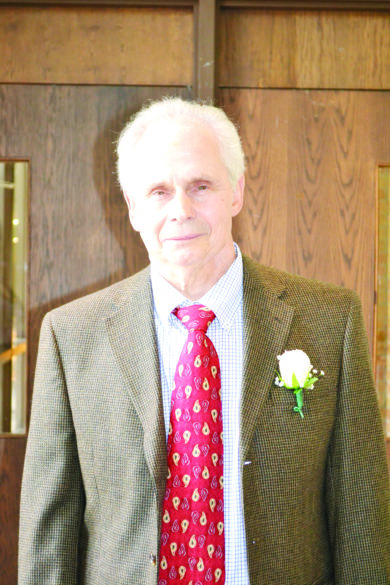GUEST COLUMN
By James Tomek, Ph.D
Synodality in Mississippi? A meeting concept to seek basic truths. In line with the synodality listening sessions designed to give all us Catholics a voice, Father Nick Adam organized a workshop, led by Father Jim Wehner, a seminarian rector in New Orleans, for priests, deacons and lay ministers, to help them/us review ministry tactics in order to become better disciples, helping all parishioners talk about what the church needs to do to become better in the major vocation areas of priest, prophet and king. With the goal of voicing all our concerns to Pope Francis, parishioners in the diocese are meeting to discuss how the church can respond to biblical situations, renewing our Good Samaritan status.
Two major questions: what essential action should the church take? What is most important to you about what the church offers? Father Jim presented sessions where he took on subjects: the essence of the church; the New Evangelization of unchurched former Catholics; the meaning of discipleship, with examples from the Bible; and, finally, how the Eucharist is our defining “Sacrament” for exploring and creating missionary and ministry tactics. A good preparation for the Synodality sessions.
Father Jim starts, citing Jesus asking “Who do you say that I am?” to Peter. The “I” is really Jesus as the church. Peter says that Jesus and the church have words of everlasting life. The “enemy,” in various forms, causes confusion and separates us from Christ and the church. How do we respond to the enemy’s tough questions? Peter advises us to give answers in reverence and gentleness (1Peter 3:15).

Father Wehner takes us to the 17th and 18th centuries, where philosophers Hobbes and Locke promoted individual rights over the common good. While respecting individual rights, our discussion leader insists that the overall concern of the church and Jesus is the common good. We are all friends of Jesus, and no longer servants, in this struggle together. The “enemy” would prefer rugged individualism and no communion. Apathea is a virtue of detachment and a positive impersonal value where we leave our egos to support our neighbor, above any personal concerns. Our ego is the enemy. What specific vocational gift do I have to help and combat the enemy of self interest?
In the next session, Father Jim explains the new evangelization movement, where the church tries to get back former Catholics who have left the church, as well as the unchurched in general. The “enemy” here is further defined as “metaphysical disorientation.” We have privatized the important concerns of discernment. Our individual views take precedent over the community’s will. All our sacraments need to be community minded. Our mission is to act in unity as we, all lay people included, are invited to priesthood. By studying our institutions, like marriage, hospitals, education and so on, we need to rearticulate them with our current world.
Next session – discipleship. When did I become a disciple? Can we lose discipleship? What grace or gifts do we need to this discipleship? We find the gifts, or offices, of priest, prophet, and king in Luke when Jesus reads from Isaiah (Lk 4: 17-28).
Father Jim glosses these offices: the priest offers himself as victim sacrificing for others; the prophet teaches and proclaims truths; while the “king” takes care of others. Some hold these offices formally, but we all practice these ministries by our baptism.
An example of becoming a disciple is seen in the Magi when they come to witness Jesus’s birth. They became ministers, especially when they go back a different way, showing that they have changed their lives after witnessing Jesus. This session ends with a healing sentiment. Jesus cures Bartimaeus by opening up his ears – and our ears, as we train to listen better to each other.
In the final session, Father Jim shows how the Eucharist/Mass is the ideal place and order for things to happen. What is polarization? Two sides of an issue. Right or wrong? Win an argument. The wrong way. This is “Metaphysical disorientation.” Let’s be attentive to the whole story of issues.
The Eucharist is the Sacrament of Unity where we can partake in the discussion. We take the bread – taking on Jesus as our friend and model. We bless the bread – saying that it is good and worthy of our community. Then, by breaking the bread, we become wounded healers sharing our penance with the community.
The Mass means “sent” – mission – sent to do the work of the intercessions that we prayed earlier. These intercessions, like feeding the poor and being pure in our intentions, are beatitudes – those conditions that bring us closer to the Kingdom of God. Us? The Communion of Saints, including family and friends, living, and gone, whom I pray for often, offering a spot of the eternal. Why do I go to church?
(James Tomek is a retired language and literature professor at Delta State University who is currently a Lay Ecclesial Minister at Sacred Heart in Rosedale and also active in RCIA at Our Lady of Victories in Cleveland.)
